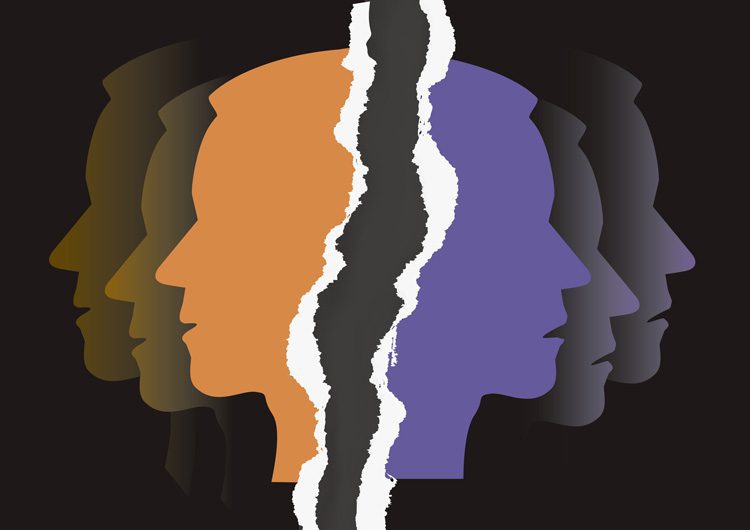Mental Health Myths, Debunked!
For a very long time, mental health was a taboo topic in the United States. People generally did not talk about it, and attempts to address mental illnesses were often so harsh and unhelpful that people would do everything possible to conceal their symptoms.
While we have made progress in the U.S. on removing the stigma from mental illness, myths still persist. These myths can be dangerous because they can reduce support for people who struggle with mental health conditions and make it difficult to get treatment.
A Hidden Epidemic
The silence around and misunderstanding of mental illness has fueled a number of myths:
- Myth: Mental illness is rare. According to the United States Department of Health and Human Services, mental illness is actually very common
- One in five American adults struggles with a mental health condition each year.
- A tenth of young people experience major depression at some point.
- 41,000 Americans die by suicide every year.
- Myth: Mental illness is the result of poor morals or character flaws. This is one of the stigmatizing myths that keeps people from being open about their mental health struggles. The idea that a person with mental illness just isn’t trying hard enough to get better perpetuates guilt and blame.
- Myth: Mental illness is a sign of low intelligence. UNICEF points out that, just like physical health conditions, mental health conditions can impact anyone, and having high intelligence doesn’t make people less susceptible. Fear that people will think they are stupid can cause people who struggle with mental illness to keep quiet and avoid seeking treatment.
“Dangerous” Conditions
Another common theme for mental-illness-related myths is misstating the dangers presented by mental health conditions:
- Myth: People with mental illnesses are “crazy.” As pointed out by the National Alliance on Mental Illness (NAMI), having a mental health condition means a person is vulnerable and needs to be supported in accessing the treatment most appropriate for them. With treatment, many people with mental illness are fully capable of living regular lives with families, jobs, and friends. “Crazy” is an outdated and hurtful word that should not be used to describe people with mental health conditions.
- Myth: People with mental illnesses are violent and dangerous. The truth is that people with mental illness are more likely to become victims of crime than perpetrators of it.
Myths Specific to Childrens’ Mental Health
Certain myths pertain to the mental health of children and adolescents specifically. These myths tend to make it harder to recognize and initiate treatment in a timely manner. Delaying treatment can cause a mental health condition to become worse than it would have, had more prompt diagnosis and treatment occurred.
- Myth: Children don’t get mental illnesses. Many mental health conditions first manifest in childhood or adolescence. According to Johns Hopkins Medicine, symptoms of mental illness are sometimes written off as moodiness or a stage a child is going through, which can prolong the wait before they are treated.
- Myth: Children cannot benefit from therapy. A number of therapeutic modalities are effective for children and adolescents.
- Myth: Putting a child on medication for their mental health will fix everything. While medication can be a very helpful tool in managing mental health at any age, it does not replace therapy for teaching the child coping skills and addressing errors in their thought processes.
- Myth: Putting a child on medication for their mental health is a mistake. While some studies reveal the negative outcomes (especially for foster youth) of placing children on too much medication, the right dosage of the right medication can be life-changing for a child who is struggling with mental illness.
- Myth: If a child develops mental illness, it’s because their parents messed up. While certain mental health conditions, such as post-traumatic stress disorder (PTSD), can result from parental neglect or abuse, the UNICEF article emphasizes that mental illness can happen in families where parents did not do anything to harm their children.
“You Can’t Have That”
Some myths exist about who can have which mental health conditions:
- Myth: Only people who have served in the military get PTSD. While the trauma of war is certainly one cause of PTSD, anyone can develop this condition if they experience a significant trauma.
- Myth: A person who has lots of friends and does well at work or school can’t have a mental illness. While having a strong support system and a sense of accomplishment can be great tools in combating mental illness, mental illness is an issue of brain chemistry. It can have genetic and physical components that have nothing to do with a person’s life situation.
Along similar lines, mental illness like depression or anxiety often have little to do with the person’s outside circumstances. Even if we perceive that someone “has nothing to be depressed about,” it is still possible for that person to struggle with their mental health.
In spite of these myths, it is important to remember that recovery from mental illness is possible. With the right support and interventions, people with even the most challenging mental illnesses have gone on to live happy, healthy lives.










